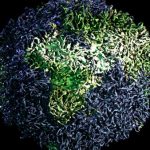
Fears of a new deadly PLAGUE growing, as Malawi becomes latest African nation on alert
Monday, November 13, 2017 by JD Heyes
http://www.populationcontrol.news/2017-11-13-fears-of-a-new-deadly-plague-growing-as-malawi-becomes-latest-african-nation-on-alert.html

Malawi is the latest African nation in danger of experiencing an outbreak of deadly plague, as the disease continues to spread throughout the island of Madagascar, the UK’s Daily Mail reports.
Some 143 people have died so far, and another 2,000 have been infected in Madagascar since an outbreak of the disease in early August.
Despite fears that the plague may spread there, Malawi’s health secretary says that his country is prepared to handle the disease. Porous borders between African nations are feeding the outbreak.
Dr. Dan Namarika, Malawi’s primary health official, told reporters that his country is working together with neighboring Mozambique to prepare as best as possible for a potential outbreak.
“We have infection prevention materials ready and groups and teams ready to be activated if there is a trigger,” Namarika said.
In addition to Malawi, several other African countries have also been warned that the plague could spread across their borders, including South Africa, Tanzania, Seychelles, Mauritius, Kenya, Mozambique, La Reunion, Comoros and Ethiopia.
The last time the plague came to Malawi was 2002, but western African nations suffered a major Ebola outbreak in 2014.
Global health organizations are pledging funds to help combat the outbreak, including the World Health Organization, which has agreed to provide £3.8 million (about $5 million), though the WHO says it may take six months to control the disease.
The particular strain of plague sweeping through the island off the coast of southeastern Africa can be killed with antibiotics, and the WHO says that its money will go towards medicines as well as extra medical personal, building disinfections and fuel for ambulances.
But case numbers are rising quickly, feeding into the belief among some that the outbreak could spiral out of control. Cases in Madagascar have climbed 8 percent in just one week, as scientists work tirelessly to prevent the disease from spreading to mainland Africa.
One health expert, Prof. Jimmy Whitworth, told the Daily Mail that the current plague outbreak is the “worst in 50 years or more.”
As for how the outbreak began, health officials say they are stumped. That said, some believe that it may have been caused by the bubonic plague which is common in the remote highlands of the African island. If the disease is left untreated, it could then transform into the pneumonic form of the disease, which has been found in at least two-thirds of cases documented thus far during the current outbreak.
As the Daily Mail notes:
Rats carry the Yersinia pestis bacteria that causes the plague, which is then passed onto their fleas.
Forest fires drive rats towards rural communities, which means residents are at risk of being bitten and infected. Local media reports suggest there has been an increase in the number of blazes in the woodlands.
If victims are not treated with antibiotics, the strain will spread to the lungs and there it becomes much more virulent in the pneumonic form. Once that happens, victims can die within 24 hours. Also, it is much easier to spread the disease via sneezing, coughing or spitting. (Related: Garlic kills bubonic plague and other pathogen-based disease epidemics.)
Madagascar experiences outbreaks of plague regularly. They most often begin in September, with some 600 cases reported annually.
But this year, the outbreak has seen the disease spread to the Indian Ocean island’s two largest cities, Antananarivo and Toamasina. That’s significant because health experts note that the disease can spread much wider and far more quickly in densely populated regions.
The Daily Star reports that the outbreak in Madagascar is becoming so severe, that local police are showing up to take control of bodies in order to limit the spread of the disease.
“The problem you have now among communities in Madagascar is that most families don’t want to give back the body,” said WHO aid worker Charlotte Ndiaye. “The police come to take the body. This is terrible. It is really terrible.”
Explore more stories on infectious disease outbreaks at Outbreak.news.
Sources include:
Tagged Under: Tags: Africa, infectious disease, Madagascar, Malawi, outbreak, Plague




